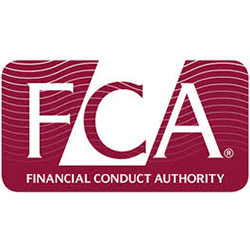FCA prepares for a 'no deal' Brexit
Chris Hamblin, Editor, London, 10 October 2018

The UK's Financial Conduct Authority has published two consultative papers in which it sets out proposals for the possibility of the country leaving the European Union on 29 March 2019 without an implementation period. It has also set out its approach to the regulation of credit rating agencies, trade repositories and data reporting service providers.
Consultative paper 18/28 proposes changes to the FCA's rules that depend upon the provisions of the European Union Withdrawal Act or the changes that HM Treasury is proposing to make to legislation in accordance with that Act. If there is no withdrawal agreement, the UK cannot rely on any new specific arrangements being in place between itself and the EU. In that case the Treasury will therefore, in general, treat the EU and its member states in the same way as it treats non-EU countries after 'D-Day,' although there will be exceptions. The Treasury will bring forward legislation to allow regulators to phase in changes to firms’ regulatory requirements.
When the UK leaves the EU, directly-applicable EU regulations - which take immediate effect on EU countries as soon as the EU issues them, but which do not apply to non-EU countries, will (in the absence of a transitional arrangement) no longer apply, leaving a legislative gap. To compensate for that, the EUWA incorporates them into British law. EU directives have already been enshrined in British law by Act of Parliament.
As the UK leaves the EU’s 'single market' (a peculiar EU term that refers to the tangle of national protectionist measures that prevent firms - notably banks - from one EU state from trading on the same terms as firms in others, plus partial immunities and total exemptions from such barriers), "passporting rights into the UK," as the FCA calls them, will cease to exist. The Government is amending the Financial Services and Markets Act 2000 so that European Economic Area firms, 'treaty firms' (roughly the same thing), operators and depositaries of Undertakings for Collective Investment in Transferable Securities (UCITS) and Alternative Investment Fund Managers (AIFM) qualifiers will no longer qualify as authorised persons. Most of the first paper is taken up by amendments to the FCA's rules and binding technical standards.
HM Treasury has delegated some powers to the FCA, the Bank of England, the Prudential Regulation Authority and the Payment Systems Regulator to edit its Brexit-related binding technical standards in accordance with the Financial Regulators' Powers (Technical Standards etc.) (Amendment etc.) (EU Exit) Regulations 2018.
The second paper, CP18/29, looks at the Government's "temporary permissions regime for inbound firms and funds." This will allow EEA firms and funds to continue regulated business in the UK in the event of no deal being struck. The paper sets out the way in which the FCA expects the regime to work, the ways in which firms and funds can subject themselves to it, the amount of time for which it will operate and the rules that the FCA wants to apply to firms and fund marketing activities during its span.
Gibraltar-based firms that 'passport into' the UK will be able to continue to operate as they do now without needing to sign up to the new regime. HM Government has promised to work closely with the Government of Gibraltar to design a replacement set of rules for 2020 and beyond. The FCA will publish proposals of its own on the subject in due course.
The consultative period is eight weeks, so comments must be in by 7 December.












